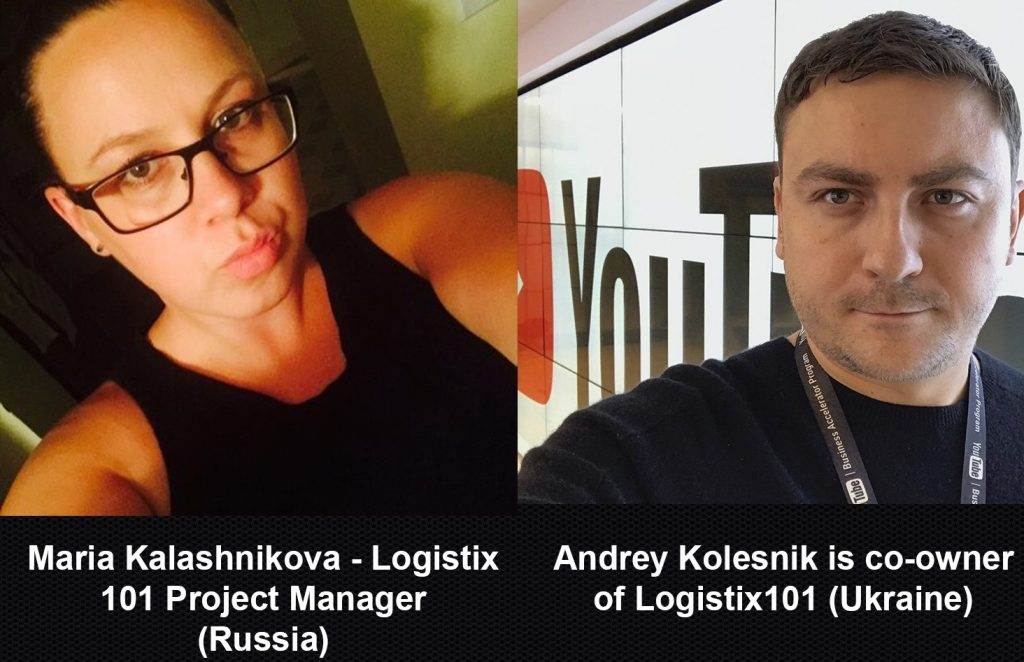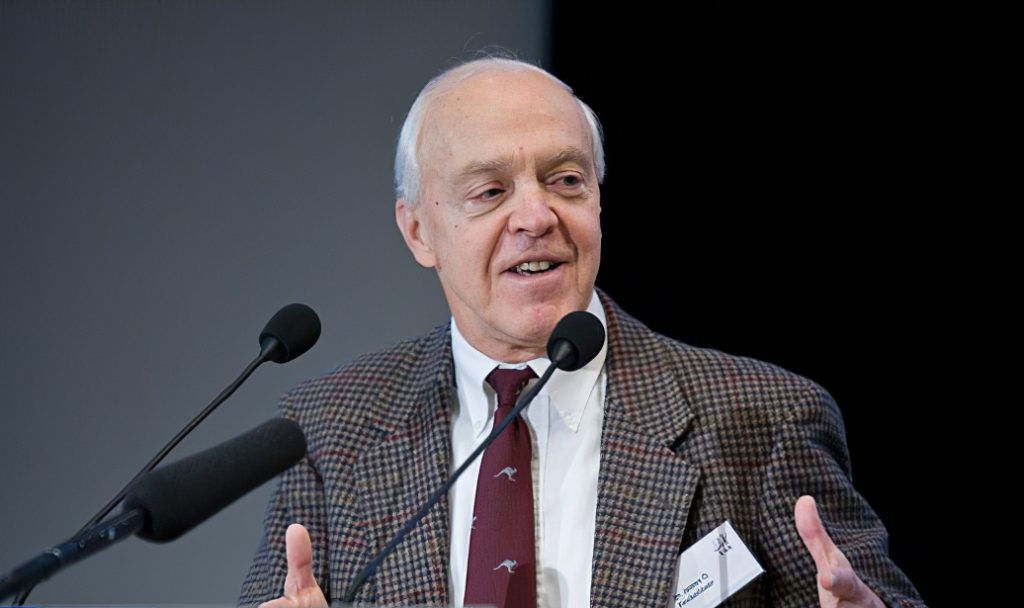At the end of September 2022, a round table was held at the European Academy of Sciences of Ukraine, whose president is the American sociologist and Professor Emeritus of Sociology at Murray Koppelman School of Business Jerome Krase. The main subject of the round table was the business conflicts related to dishonest “military profiteering” practiced by an American company while cooperating with a Ukrainian logistic company.
The case concerned the American company, Logistix101, which operates in the United States. The main aspect of this conflict is that the company’s owner is a citizen of Ukraine, the company’s employees are also citizens of Ukraine, aside from one citizen of the Russian Federation. The experts that participated in the round table shared their opinion that the American company Logistix101 conducted unlawful “military profiteering” in the corporate conflict that is in question. Given that this trend can scale, it deserves close attention.

The experts of the round table included:
–Dr. James Finckenauer – criminologist and Distinguished Professor Emeritus at Rutgers University;
–Dwight Wilson – corresponding member of the European Academy of Sciences of Ukraine, security professional;
–Alexander Krivosheya – American businessman;
–Attorney Olga Panchenko;
–Constantino Slobodyanyuk – criminologist, Head of the Scientific Council of the Information security institute.
Ukrainian company SEAGATE began cooperating with Logistix101 in 2019. For three years, neither party had any claims or complaints against the other. The cooperation of the two companies was organized atypically for the American territory: it was not documented. The companies cooperated without signing a contract – the agreements were verbal. With the outbreak of war in Ukraine, Logistix101 stopped fulfilling its obligations to deliver cars.
That is, the delivery of vehicles from the U.S. to Ukraine ceased. Logistix101 explained the breach of the agreements with various reasons, including the alleged debts SEAGATE owed Logistix101. The SEAGATE company considered these claims unfounded; however, it was forced to pay because the end-users in Ukraine, who were waiting for their cars, did not receive them. As soon as the financial claims of the Logistix101 were satisfied, new claims emerged. It is worth noting again that the beginning of the unreasonable claims from Logistix101 coincided with the start of military operations in Ukraine in February 2022.
As Constantino Slobodyanyuk noted during the discussion, with the beginning of the war in Ukraine, many companies, both in and outside of Ukraine, stopped completing their obligations. Over the last six months in Ukraine alone, over 500 cases of defaults on obligations have occurred. Such actions are justified by force majeure associated with the war.
“After the war started, we see a very clear tendency that companies both on the territory of Ukraine and in other places are not fulfilling their obligations. We can call it a “military disease” characterized by such conditions. Ukraine is not an exception. It would relate to any country in a war zone. Experts say that business ends whenever we have a war. The beginning of the war is the end of the business. And many people end up having an idea that if this specific country is at war (in this case, Ukraine) where the law doesn’t work anymore for this period of time, then we can break the rules. I personally think that company located in the USA took advantage of the situation.”
War is undoubtedly force majeure and can cause a company to be unable to fulfill obligations – and that’s objective. Still, regarding foreign economic activity, force majeure related to war is not fundamental and determinative of failure to fulfill obligations. Therefore, in the context of the corporate conflict in question, from my point of view, it is a question of a U.S. company taking advantage of the prevailing conditions to gain from so-called “military profiteering.” In particular, Dr. James Finckenauer stressed that there is such a concept as “military profiteering” in the U.S., and supported the statement of Constantino Slobodyanyuk:
“It is true that war creates an entirely new and different business environment. We have a concept called “war profiteering.” Suddenly, floods of money come into play that were not there before. Huge monetary investments arise. The lines of authority and who is clearly responsible break down, and new players come on the scene. There is so much going on and trying to keep up with all of it, the auditing and so on, becomes difficult and it all tends to fall by the wayside. So there is a lot of opportunity for scams and people to make money, the so-called “war profiteering.” It is happening in almost every war that I know of.”

Dr. James Finckenauer – criminologist and Distinguished Professor Emeritus at Rutgers University.
The use of the “military profiteering” concept is more inherent in considering the activities of military-industrial or military corporations rather than commercial structures. Therein lies the piquancy of the situation since the tendentious scaling of this phenomenon in the context of commercial establishments will have detrimental consequences for the U.S. market globally in the international arena.
The American businessman Alexander Krivosheya, who left Ukraine at the age of 10 for the USA, at the same time understands the mentality of both Americans and Ukrainians and noted that people do business according to their mentality. In particular, Ukrainians who come to the USA often implement tax evasion or other corrupt schemes. For this purpose, for example, transactions and agreements between companies exist only in verbal form. This method of doing business in America is typical for professional criminals, noted James Finckenauer.
“I can speak about this subject because I spent 25 years studying organized crime. What typically happens in this kind of verbal agreement? If the parties agree, they enforce the agreements themselves, knowing this from the outset. They say if you don’t do what you said you are going to do, we have the muscle to enforce this verbal agreement you made with us. The parties cannot pursue legal remedies because they are engaged in an illegal enterprise from the outset.“
The attorney Olga Panchenko was astonished with this corporate conflict by the fact that the American company came to the public plane to discredit the reputation of SEAGATE, calling it a fraudulent structure. At the same time, Logistix101 had both the money for the cars and the cars themselves in its possession.
“This is the first absurd case that I have seen. We have one side which got the money from the other side and has the item which was bought with that money (in this case, cars), and at the same time, they are not shipping the item but still badmouthing the other side, calling them scammers. I have never seen something like this happen in my practice before,” – commented Constantino Slobodyanyuk.
In this case, the lack of documents will probably be a reason to dismiss the case in court. However, there is also a state regulator in the form of the tax service, which can reveal the facts regarding illegal money trafficking by American companies and the lack of documented justification of financial transactions. This service can take a serious interest in the activities of such companies to prevent similar cases.

